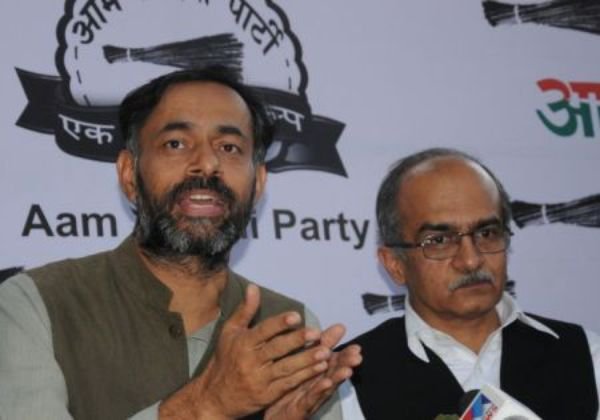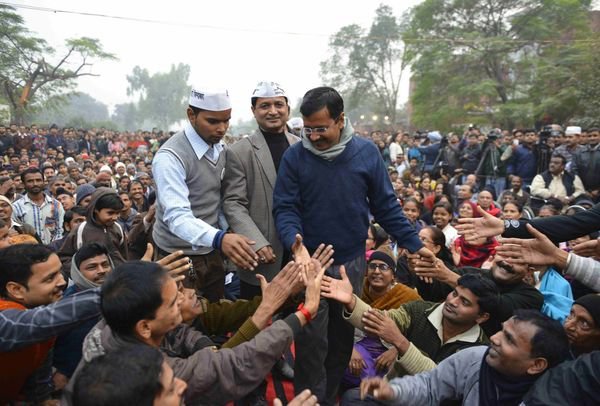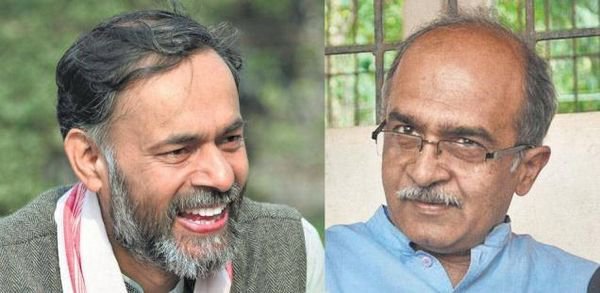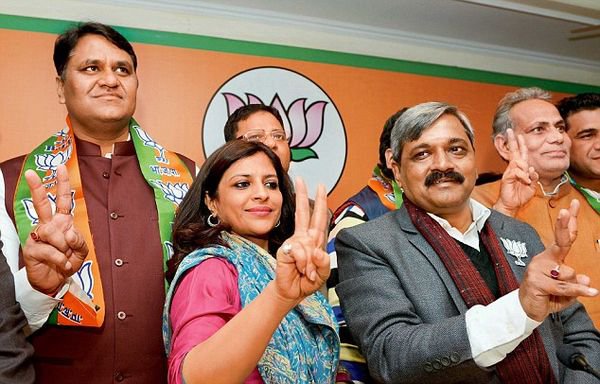AAP leaders Yogendra Yadav and Prashant Bhushan have been expelled from the party’s Political Affairs Committee (PAC), the conclusion of a continuing narrative of irreconcilable divisions within the party.
Interestingly, while many expected it to be a one-sided affair, Yogendra and Prashant were removed by a 11-8 vote, with 3 members abstaining. The close margin may indeed be a testament to the standing these leaders enjoy in the party.
While removed from the PAC, they have not left the party itself. Their future roles within the party remain uncertain.

The story of Aam Aadmi Party’s internal rife and mutiny began early last year, right after their poor showing in the Lok Sabha elections.
The Aam Aadmi Party (AAP) is quite possibly the youngest and the most successful political party based on electoral outcome in recent times. However, after its massive victory in the Delhi elections, AAP has been in the news for all the wrong reasons.
Ever since the Lok Sabha rout of AAP in May 2014, prominent party leaders such as Prashant Bhushan and Yogendra Yadav have publicly complained about the lack of inner party democracy in AAP and have repeatedly warned against a personality cult around Arvind Kejriwal.

And barely weeks after the conclusion of the Delhi elections, the fight came out in the open, with accusations of takeovers, sting operations, recordings of interviews and comments on social media capturing the attention of the people.
The primary allegation against Yogendra Yadav, as some claim, is that he was aiming and promoting himself as the national convener of the party once Kejriwal took oath as Delhi CM.
Not only this, Prashant Bhushan, in a letter dated February 26 addressed to the national executive of the party – a copy of which is with ET – slammed Kejriwal for “overturning collective decisions of the party”.

While Kejriwal has distanced himself from the controversy, party insiders predicted that Yadav and Bhushan maybe ousted from the political affairs committee (PAC) of AAP when the national executive meets on Wednesday, February 4.
And their ouster was cemented when Arvind Kejrwal resigned as the National Convener of AAP in a surprise move before the national executive meeting.
In a series of tweets, he expressed his sadness and refused to be drawn into this internal spat in the party.
I am deeply hurt and pained by what is going on in the party. This is betrayal of trust that Delhi posed in us(1/2)
— Arvind Kejriwal (@ArvindKejriwal) March 3, 2015 I refuse to be drawn in this ugly battle.Will concentrate only on Delhi’s governance.जनता के भरोसे को किसी भी हालत में टूटने नहीं दूंगा(2/2)
— Arvind Kejriwal (@ArvindKejriwal) March 3, 2015 Very true, Sir. The people of Delhi who came out in support of AAP are indeed disappointed with how their party seems to be imploding.
Over time, many have resigned from the party and have spoken out against the seemingly autocratic hold of Kejriwal on the party.

Different parties have different styles of working and while power-grabbing is a part of politics, especially after such a large mandate, the entire episode seems to have spiraled out of control.

















